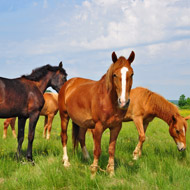
Aims to support good animal welfare
New guidelines to assess the fitness of equines for transport have been published following extensive research and consultation.
Coordinated by World Horse Welfare and the Federation of European Equine Veterinary Associations, the guidelines are directed at anyone involved in transporting horses, ponies, and donkeys.
The publication has been developed by experts in the fields of animal transport, welfare, veterinary medicine, industry, research and enforcement.
It aims to support good animal welfare, reduce public health risks, and develop a consistent approach across the European Union.
Furthermore, the guidelines help transporters avoid penalties, financial losses and withdrawal of authorisation or driver’s certificate of competence.
Welcoming the guidelines, Andrea Gavinelli, head of animal welfare at the European Commission, said: “EU Regulation 1/2005 states that “No animal shall be transported unless it is fit for the intended journey”. With this provision the legislator recognised the very important risk to welfare deriving from the transport of unfit animals.
“As in many cases, proper enforcement of the legislation depends upon it being understood. This is why these guidelines play an important role in assisting everyone involved in the transport of horses to ensure they are in full compliance with the legislation. Documents such as this are vital tools for maintaining good health and welfare amongst transported animals."



 RCVS Knowledge has welcomed Professor Peter Cockcroft as editor-in-chief for Veterinary Evidence.
RCVS Knowledge has welcomed Professor Peter Cockcroft as editor-in-chief for Veterinary Evidence.